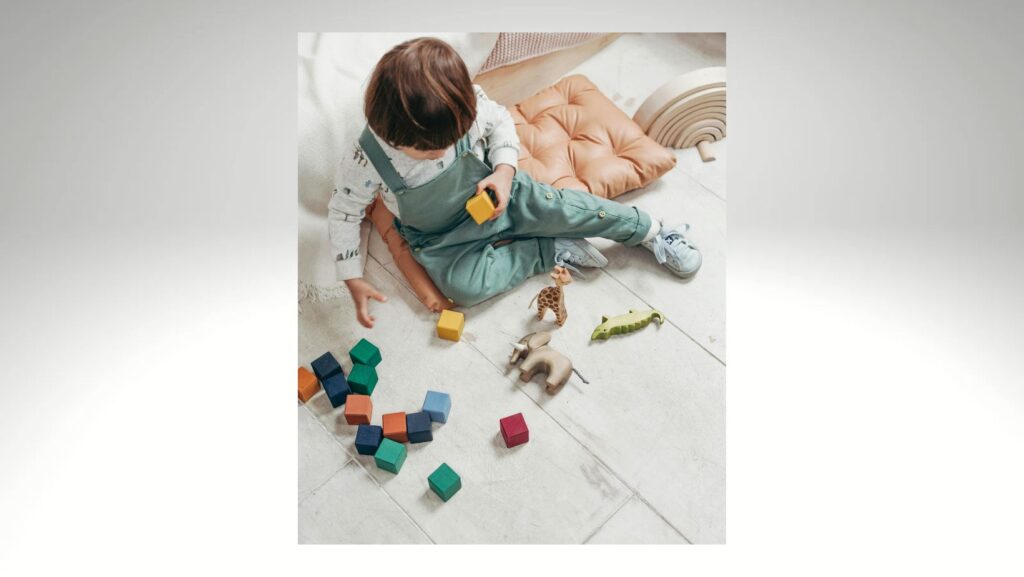In today’s fast-paced world, children are often bombarded with screens and electronic devices. This could eventually hinder their ability to play independently. However, it is essential for children to learn how to entertain themselves and use their imagination. Teaching children how to play by themselves not only fosters independence but also improves problem-solving skills. Next to that it can stimulate creativity.
Setting The Stage For Independent Play
Before introducing children to the concept of playing by themselves, it is crucial to create a conducive environment for independent play. Designate a specific play area in the home where children can have easy access to toys and materials. Keep the space organized and clutter-free to avoid overwhelming children with choices.

Additionally, make sure the toys available are age-appropriate and encourage open-ended play. You might want to make a selection of toys and store the rest. Then, in a few weeks, you can make a new selection out of all toys to change up the play experience.
Introducing Wooden Toys
Wooden toys are a great option for promoting independent play as they are durable, versatile, and stimulate creativity. Unlike electronic toys that have predetermined functions, wooden toys allow children to use their imagination and come up with various ways to play. From building blocks to puzzles, wooden toys come in a variety of options that can keep children engaged for hours.
Stimulate Engagement With A Doll House
Dollhouses are also another excellent tool for teaching children how to play by themselves. Dollhouses provide a miniature world where children can role-play, create stories, and develop social skills.

By interacting with dolls and furniture in a doll house, children can practice empathy, communication, and problem-solving.
Encourage Independent Play
It is essential to keep encouraging independent play. Set aside specific playtime each day where children are encouraged to play by themselves without adult intervention. This time allows children to explore their interests, develop creativity, and build problem-solving skills.
During independent playtime, resist the urge to intervene or direct children on how to play. Let them take the lead and explore their imagination freely. Offer praise and positive reinforcement for their efforts and creativity. By giving children the space to play independently, they will learn to entertain themselves and develop a sense of autonomy.


